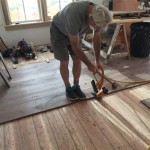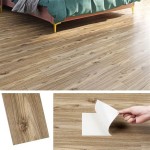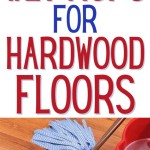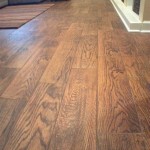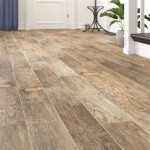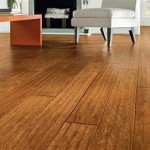Real Wood Floors vs Engineered: Choosing the Right Option for Your Home
Choosing the right flooring for your home is a significant decision that can impact both the aesthetics and functionality of your living space. Real wood floors and engineered wood floors are two popular options, each offering distinct advantages and disadvantages. This article will delve into the key differences between real wood floors and engineered wood floors to help you make an informed decision based on your needs and preferences.
Real Wood Floors: Timeless Beauty and Natural Charm
Real wood floors are crafted from solid pieces of wood, typically hardwood species such as oak, maple, cherry, or walnut. They are renowned for their natural beauty, durability, and timeless appeal. The unique grain patterns and variations in color add character and warmth to any room.
Real wood floors offer several advantages:
- Natural Beauty and Aesthetics: The unique grain patterns, color variations, and natural textures of solid wood create a timeless and elegant look.
- Durability and Longevity: With proper care and maintenance, real wood floors can last for generations. They can be sanded and refinished multiple times, restoring their original beauty.
- Increased Home Value: Real wood floors are a valuable investment, adding significant value to your home.
- Versatility: Real wood floors can be stained and finished in various colors and styles to complement any interior design.
However, real wood floors also have some drawbacks:
- High Cost: Real wood floors are generally more expensive than engineered wood floors.
- Susceptibility to Moisture and Damage: Solid wood is sensitive to moisture and can warp or crack if exposed to excessive humidity.
- More Maintenance: Real wood floors require regular cleaning, waxing, and refinishing to maintain their appearance.
- Limited Availability: Certain wood species may be scarce or expensive, restricting your choices.
Engineered Wood Floors: A Practical and Durable Choice
Engineered wood floors are constructed using a layered approach. They consist of a thin layer of real wood veneer bonded to a core of plywood or other stable materials. This construction method provides increased stability, moisture resistance, and durability compared to solid wood floors.
Engineered wood floors offer various benefits:
- Cost-Effectiveness: Engineered wood floors are generally more affordable than real wood floors.
- Stability and Moisture Resistance: The layered construction makes engineered wood floors more resistant to moisture and warping, making them suitable for areas prone to humidity.
- Durability and Longevity: With proper care, engineered wood floors can last for many years.
- Wide Variety of Choices: Engineered wood floors are available in a vast range of wood species, colors, finishes, and styles.
However, engineered wood floors have some limitations:
- Limited Refinishing Options: Engineered wood floors can only be refinished a few times due to the thin veneer layer.
- Potential for Uneven Wear: In high-traffic areas, the veneer layer may wear unevenly over time.
- Less Natural Look: While engineered wood floors offer a realistic wood appearance, they lack the unique grain patterns and variations found in solid wood.
Key Considerations When Making Your Choice
The choice between real wood floors and engineered wood floors ultimately depends on your individual needs, budget, and lifestyle. Consider the following factors:
- Budget: Real wood floors are typically more expensive than engineered wood floors.
- Lifestyle: If you have children or pets, engineered wood floors may be a more practical choice due to their durability and moisture resistance.
- Location: In areas prone to moisture, engineered wood floors may be a better option.
- Aesthetics: Real wood floors offer a natural and timeless beauty, while engineered wood floors provide a variety of styles and options.
- Maintenance: Real wood floors require more maintenance than engineered wood floors.
By carefully considering these factors, you can choose the flooring option that best meets your requirements and enhances your home's beauty and functionality.

Solid Vs Engineered Hardwood Which Is Better

Engineered Wood Vs Solid Which Is Better Woodpecker Flooring

Engineered Wood Flooring Vs Solid Hardwood

Solid Vs Engineered Quality Hardwoods Superior Design Palo Duro

Solid Vs Engineered Hardwood Which Is Better

Engineered Wood Flooring Vs Solid Forté Nz

Hardwood Vs Engineered Lvp Which Is Better

Difference Between Solid And Engineered Timber Flooring

Solid Vs Engineered Hardwood Floors What S The Difference

Hardwood Vs Engineered Wood Flooring Which Is Better Bessemeter


